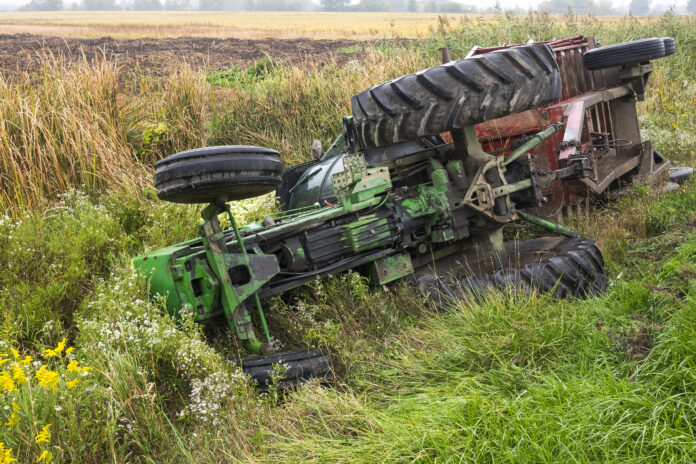ONTARIO—Farming is one of the most stressful occupations in the world. National surveys conducted in 2016 and 2021 showed that farmers in Canada experienced greater mental health challenges than the general population. The 2021 National Survey of Farmer Mental Health led by Dr. Andria Jones-Bitton revealed that more than 60 percent of farmers are more susceptible to chronic stress and more than half of farmers met the classification for anxiety.
It’s not always easy to follow the link from research study to applications in the real world. At the inaugural National Symposium on Agricultural Mental Health held on March 8, researchers and leaders in agricultural mental health came together to share the research and the programs and services that are direct outcomes of this recent research and studies completed across Canada.
“The value of bringing together people and organizations that care about mental health in agriculture has only increased in this past few years,” said Camille Quenneville, CEO of Canadian Mental Health Association, Ontario Division (CMHA Ontario). “All of us in the agricultural community continue to face constant, competing and growing demands, adding to their stress and putting additional strain on their mental health. Navigating these aspects through the pandemic and the changes that have come with it is challenging to say the least.”
CMHA-Ontario is actively working to support agriculture mental health in Ontario through its Guardian Network and other wellness programs, part of the Agriculture Wellness Ontario suite of programs. The Guardian Network is a voluntary suicide prevention network that supports the farming community in Ontario. Suicide rates among farmers in Canada are two times the rate of the general population.
The results of the 2021 survey also showed that 45 percent of farmers were classified as having high stress; almost 60 percent met the criteria for an anxiety classification; more than 30 percent met the criteria for a depression classification; and 40 percent reported that they would feel uneasy seeking professional help.
One in nine Canadians work in the agriculture sector in Canada. Few sectors have this much impact on a national or even world scale, but there is less connection between farmers and consumers which can really impact a farmer’s mental health, said Lauren Van Ewyk of the National Farmer Alliance.
The total area of farmed land has been shrinking since 2001, she noted. “In Ontario, we lose 319 acres a day and there’s actually an increase in pressure on farmers to grow more on less.”
In 1931, one in three people were part of the farm population and in 2016 that number was one in 58.
As a practicing veterinarian, Dr. Jones-Bitton was hearing a lot of stories about farmers struggling with mental health and wanted to learn a little bit more about what was impacting that, and why this happening, said Dr. Briana Hagen, CEO and lead scientist at Canadian Centre for Agricultural Wellbeing (CCAW), who gave the keynote presentation on behalf of Dr. Jones-Bitton. Back in 2015, Dr. Jones-Bitton wondered why she was hearing stories of suicide among farmers and was very surprised to find there wasn’t any data available on this subject in Canada.
With her team, she developed the first national survey of farmer stress and resilience in Canada using both quantitative and qualitative data. “It was also important that this research wasn’t going to just sit on a shelf,” Dr. Hagen said. “She wanted to make sure this research would inform some program development.”
They received a huge response once that initial survey went live online. “That meant the ag community was ready to talk about mental health and really it was an area that needed some attention,” Dr. Hagen explained.
They learned that for farmer mental health programming to be successful, the supports would need to be low or now cost, offer gender specific approaches, reduce stigma and normalize mental health within the broader community, accessible and integrated with existing services, and very importantly, must use a farm credibility lens (meaning the provider has some knowledge or experience within the agriculture sector).
The AWO program, In The Know, resulted from these efforts, following input from an agricultural community working group and a pilot project.
Rochelle Thompson is a seventh-generation chicken farmer and a Ph.D. student at the University of Guelph. Under the supervision of Dr. Jones-Bitton and Dr. Hagen, Ms. Thompson is conducting research to better understand and improve the mental health of farmers in Canada.
“There is this uniqueness in agriculture as an intersective home, business and history and the connection to land that needs to be represented in the material,” she said, discussing the results of the 2021 survey. “You can’t just leave your work at work because your work is at home. You can’t go home and vent about your co-workers because your co-workers are having dinner with you as your family.”
“We need effective ways to reduce farmers’ stress and boost their wellbeing,” Ms. Thompson added. “Farmers have been dealing with a really specific set of occupational stressors for generations. We wanted to find out what strategies they’re already using and what strategies they find effective to cope with the stress.”
Top stressors were revealed to be gender (women tend to have higher levels of stress, anxiety and depression); unpredictability of a changing climate; workload; government policy and regulation; financial stress; and uncertainty about the future.
Farmers also shared their most effective ways of coping with stressors. These strategies including disconnecting from the farm by taking a few days or a few hours off or even having a conversation that’s not about farming; being mindful and focusing on routine tasks when stressed; by accepting things they have little control over, like the environment, market uncertainty or machinery breakdown; and by practicing gratitude or looking at their blessings.
Going on a hike or a bike ride or getting other forms of physical exercise were also recognized as being helpful in coping with stressors and improving mental health outcomes.
During the symposium, Canada’s Minister of Agriculture and Agri-Food, Marie-Claude Bibeau, announced funding of $168,440 to support the CCAW, allowing the organization to expand mental health resources for the agricultural community.
“This conference is an important step to improving our understanding of the issues around mental health in agriculture right across the country,” she said.
“Across Canada on farms, women and men work very hard. They care about the health of their land and their animals. They help feed their communities and put food on the tables of Canadians. Thanks to their dedication, our vibrant agri-food sector drives our economy in jobs while feeding Canada and the world,” said Minister Bibeau.
“Today, Canada has a bright future as a top provider of high quality agriculture and food products in markets around the globe. Yet we know farmers are vulnerable when it comes to mental health struggles. Farming is even more stressful these days given the many obstacles farmers are facing. High interest costs and input rates, animal and plant diseases, labour shortages, and extreme weather events: all of these pressures are beyond their control. That’s why we are so grateful for the work of researchers such as keynote speaker Dr. Andria Jones-Bitton and others presenting today.”
Approximately 400 people attended the symposium online, joining from across Canada and from as far away as Georgia, United States, the Dominican Republic and France.





